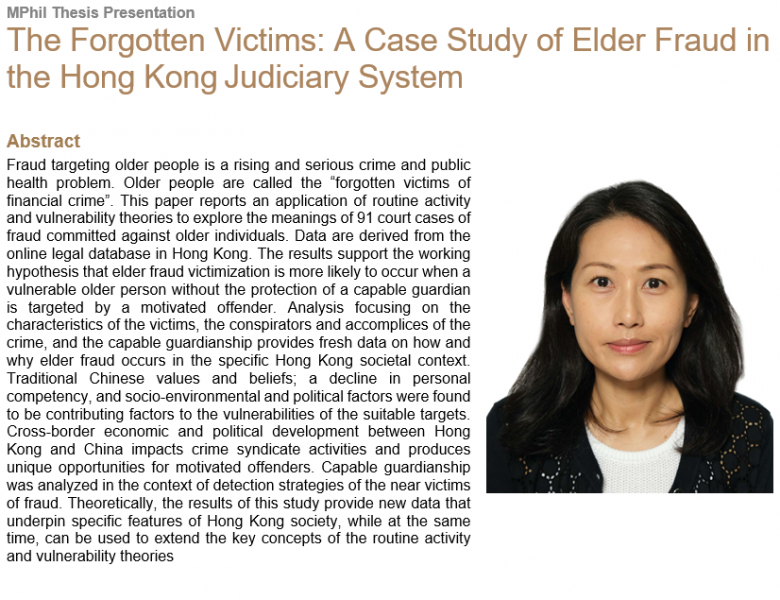Abstract
Fraud targeting older people is a rising and serious crime and public health problem. Older people are called the “forgotten victims of financial crime”. This paper reports an application of routine activity and vulnerability theories to explore the meanings of 91 court cases of fraud committed against older individuals. Data are derived from the online legal database in Hong Kong. The results support the working hypothesis that elder fraud victimization is more likely to occur when a vulnerable older person without the protection of a capable guardian is targeted by a motivated offender. Analysis focusing on the characteristics of the victims, the conspirators and accomplices of the crime, and the capable guardianship provides fresh data on how and why elder fraud occurs in the specific Hong Kong societal context. Traditional Chinese values and beliefs; a decline in personal competency, and socio-environmental and political factors were found to be contributing factors to the vulnerabilities of the suitable targets. Cross-border economic and political development between Hong Kong and China impacts crime syndicate activities and produces unique opportunities for motivated offenders. Capable guardianship was analyzed in the context of detection strategies of the near victims of fraud. Theoretically, the results of this study provide new data that underpin specific features of Hong Kong society, while at the same time, can be used to extend the key concepts of the routine activity and vulnerability theories.

